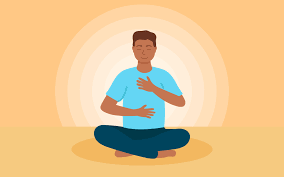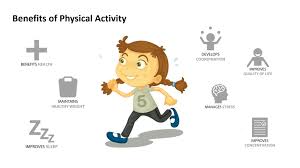Meditation, an ancient practice with roots in various cultural and spiritual traditions, has gained immense popularity in modern times as a powerful tool for enhancing mental and physical well-being. As more people turn to meditation for stress relief, clarity, and overall health improvement, scientific research continues to uncover the profound benefits it offers. This comprehensive guide explores the incredible health benefits of meditation, highlighting how this simple practice can lead to a healthier, more balanced life.
1. Understanding Meditation

What is Meditation?
Meditation is a mental practice that involves focusing the mind and eliminating distractions to achieve a state of deep relaxation and heightened awareness. It encompasses various techniques, including mindfulness, concentration, and guided meditation, each offering unique benefits. The primary goal of meditation is to cultivate a state of mental clarity and emotional stability.
Types of Meditation
- Mindfulness Meditation: Focuses on being present in the moment and observing thoughts and feelings without judgment.
- Transcendental Meditation: Involves the silent repetition of a mantra to achieve a state of restful awareness.
- Guided Meditation: Uses verbal instructions and imagery to guide individuals through a meditative experience.
- Loving-Kindness Meditation: Centers on cultivating feelings of compassion and kindness towards oneself and others.
2. Mental Health Benefits
1. Stress Reduction
One of the most well-documented benefits of meditation is its ability to reduce stress. Meditation helps lower cortisol levels, the hormone associated with stress, and promotes relaxation. Regular practice can lead to decreased symptoms of anxiety and improved emotional resilience, making it easier to manage daily stressors.
2. Enhanced Focus and Concentration
Meditation trains the mind to concentrate and maintain attention. Studies have shown that mindfulness and concentration meditation improve cognitive function, including memory, attention span, and decision-making skills. Enhanced focus can lead to better performance in both personal and professional tasks.
3. Improved Emotional Well-Being
Meditation fosters emotional balance and resilience. By encouraging self-awareness and emotional regulation, meditation helps individuals manage negative emotions and cultivate a more positive outlook on life. Regular practice can reduce symptoms of depression and promote overall emotional well-being.
4. Increased Self-Awareness
Meditation encourages self-reflection and introspection, leading to greater self-awareness. By observing thoughts and feelings without judgment, individuals gain insights into their behaviors and motivations, fostering personal growth and self-improvement.
3. Physical Health Benefits

1. Lower Blood Pressure
Meditation has been shown to have a positive impact on cardiovascular health. By promoting relaxation and reducing stress, meditation helps lower blood pressure and improve overall heart health. Regular practice can contribute to a reduced risk of hypertension and related cardiovascular conditions.
2. Improved Sleep Quality
Individuals who struggle with insomnia or poor sleep quality may benefit from meditation. Relaxation techniques and mindfulness practices can help calm the mind and prepare the body for restful sleep. Meditation promotes better sleep patterns and reduces symptoms of insomnia.
3. Pain Management
Meditation can be an effective tool for managing chronic pain. Studies have demonstrated that mindfulness meditation can alter the perception of pain and reduce pain-related distress. By focusing on the present moment and practicing acceptance, individuals can experience relief from chronic pain conditions.
4. Boosted Immune System
Research suggests that meditation may have a positive impact on the immune system. Regular meditation practice has been associated with increased levels of immune function, potentially enhancing the body’s ability to fight off infections and illnesses.
4. Cognitive Benefits
1. Enhanced Creativity
Meditation encourages mental relaxation and openness, which can foster creativity and problem-solving abilities. By quieting the mind and reducing mental clutter, individuals may experience improved creative thinking and innovative solutions.
2. Better Memory Retention
Meditation practices that involve concentration and mindfulness can enhance memory and cognitive function. Improved focus and mental clarity contribute to better memory retention and recall, supporting learning and cognitive performance.
3. Reduced Cognitive Decline
There is evidence to suggest that meditation may help slow cognitive decline associated with aging. Regular meditation practice has been linked to improved cognitive function and a lower risk of developing neurodegenerative diseases, such as Alzheimer’s disease.
5. Lifestyle and Behavioral Benefits
1. Healthier Eating Habits
Meditation can positively influence eating behaviors by promoting mindfulness and self-awareness. Mindful eating practices encourage individuals to pay attention to hunger cues and eating habits, leading to healthier food choices and improved digestion.
2. Enhanced Relationships
Meditation fosters empathy and compassion, which can improve interpersonal relationships. Loving-kindness meditation, in particular, cultivates feelings of kindness and understanding towards oneself and others, leading to more meaningful and harmonious relationships.
3. Increased Resilience
Meditation helps build resilience by promoting emotional regulation and stress management. Individuals who meditate regularly are better equipped to handle life’s challenges and setbacks with greater ease and composure.
6. Getting Started with Meditation

1. Finding the Right Technique
Explore different meditation techniques to find the one that resonates with you. Whether it’s mindfulness, guided meditation, or another method, choose a practice that aligns with your goals and preferences.
2. Creating a Routine
Consistency is key to reaping the benefits of meditation. Set aside a specific time each day for meditation, starting with just a few minutes and gradually increasing the duration as you become more comfortable with the practice.
3. Using Resources
There are numerous resources available to support your meditation journey. Apps, online courses, and guided meditation recordings can provide valuable guidance and structure as you develop your practice.
4. Being Patient
Meditation is a skill that develops over time. Be patient with yourself as you explore and refine your practice. Consistent effort and an open mind will lead to greater benefits and a deeper connection with yourself.
7. Conclusion
Meditation offers a wealth of incredible health benefits, encompassing mental, physical, cognitive, and lifestyle improvements. From reducing stress and enhancing focus to boosting immune function and improving relationships, the advantages of meditation are vast and transformative. By incorporating meditation into your daily routine, you can experience profound changes in your overall well-being and quality of life. As you embark on your meditation journey, remember that consistency and patience are essential. Embrace the practice with an open mind, and discover the remarkable benefits that meditation can bring to your life.


